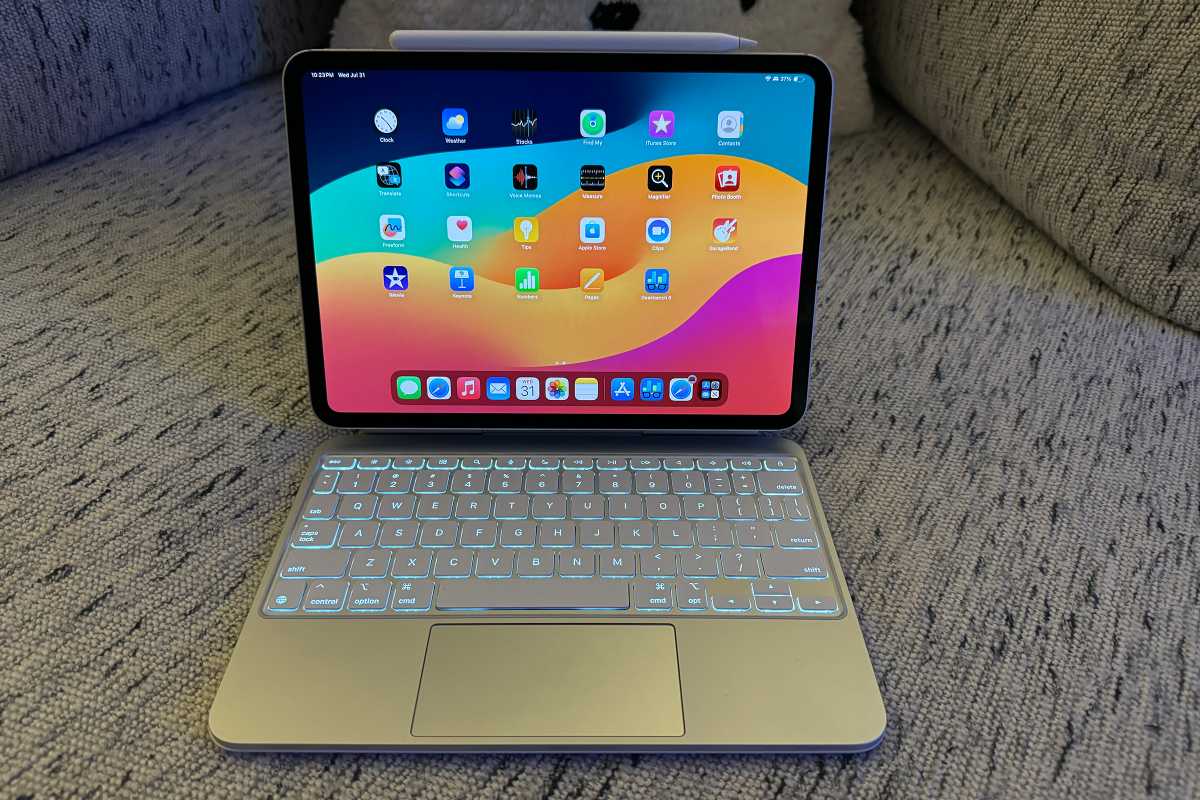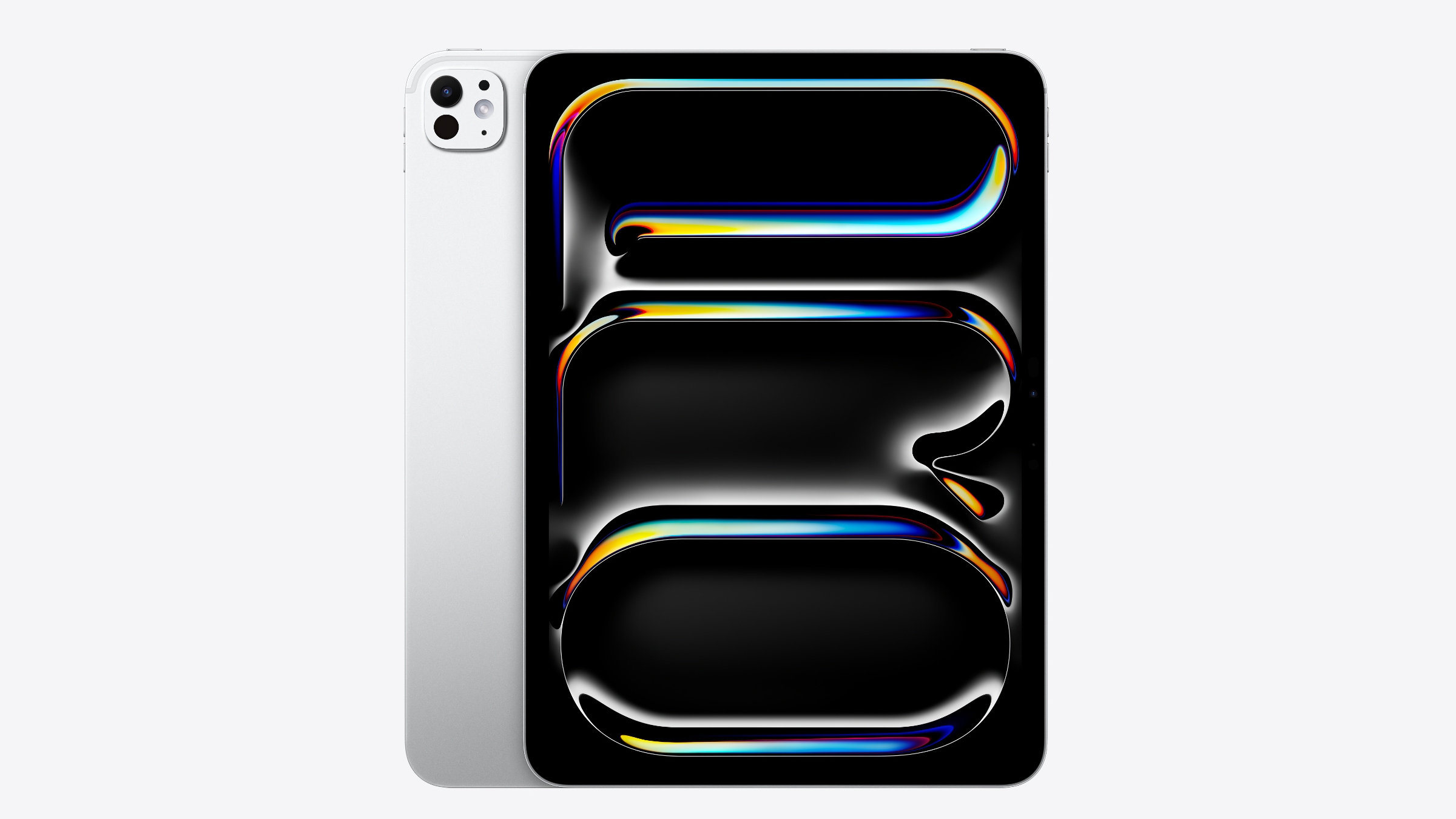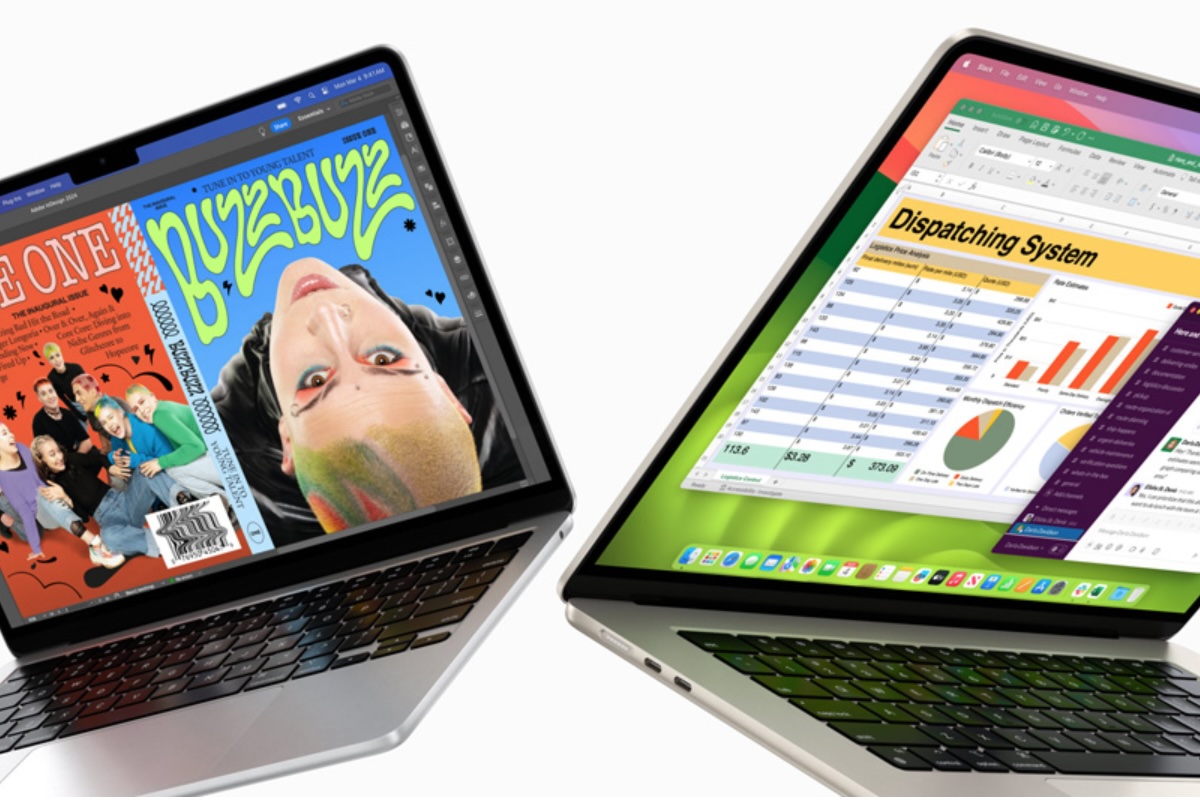When the iPad arrived in 2010, it was instantly clear that Apple got it right. The tablet computer wasn’t a new thing, but the design and interface of the iPad were on a different level, with a slim form factor, speedy processor, multi-touch interface, and a satisfying experience. It felt like a device from the future.
Now that we’re in that future, the original iPad seems like a relic with giant bezels and a thicker body than two of the latest iPads stacked together. The latest iPad Pro has a processor that’s light years ahead of the A4 that shipped in the original iPad and a design that brings a significantly larger display in a body that’s nearly 75 percent thinner:
Original iPad
- Height: 9.56 inches (242.8mm)
- Width: 7.47 inches (189.7mm)
- Depth: 0.5 inch (13.4mm)
- Weight: 1.5 pounds
M4 iPad Pro (11-inch)
- Height: 9.83 inches (249.7mm)
- Width: 6.99 inches (177.5mm)
- Depth: 0.25 inch (5.3mm)
- Weight: 0.98 pound
That’s nothing short of remarkable. Yes, it’s been 14 years, but few other devices have advanced like the iPad. Just compare the 15-inch MacBook Pro from 2010 to the 15-inch MacBook Air from 2024:
15-inch MacBook Pro (mid-2010)
Height: 0.95 inch (2.41 cm)
Width: 14.35 inches (36.4 cm)
Depth: 9.82 inches (24.9 cm)
Weight: 5.6 pounds (2.54 kg)
15-inch MacBook Air (M3)
Height: 0.45 inch (1.15 cm)
Width: 13.40 inches (34.04 cm)
Depth: 9.35 inches (23.76 cm)
Weight: 3.3 pounds (1.51 kg)5
Of course, today’s MacBook Air is thinner and lighter than the same-sized Pro from 2010, but keep in mind that Apple also dropped some features over the years to help trim the size, including Gigabit Ethernet and FireWire 800 ports and an 8x slot-loading SuperDrive. That’s generally how it works—to get devices thinner, Apple removes legacy features, such as USB-A on the iMac and the 3.5mm jack on the iPhone. The result is almost always a compromise that tries to overshadow what was lost through a stunning design.
Bucking that trend, the iPad from 2024 is significantly better in every way than the 2010 model—display, design, connectivity, performance, and features. Pick one up and it’s hard to believe it’s a real device and not some movie prop. And when you dive into what’s inside it, it’s practically impossible.
Lighter than Air
With a thickness of a quarter-inch, the iPad Pro simply doesn’t make sense. How Apple can pack an OLED display, Face ID, an M4 chip, 1TB hard drive, 16GB of RAM, 12MP camera, and 10 hours of battery life into a ridiculously thin and light enclosure that blows away any other iPad is a marvel.
Even if you compare the iPad Pro to Apple’s other products, it’s a standout, with a better processor than the MacBook Air, a better screen than the MacBook Pro, and a nicer design than the iPhone 15. It’s arguably the best tablet ever made and one of the nicest designs to ever come out of Cupertino. And the front camera is finally in the right spot.
If I didn’t know better, I’d think it was a Jony Ive creation. Just holding it brings back memories of the iPod nano or original MacBook Air. It’s that shocking, especially when you consider it’s also one of Apple’s most powerful devices. Even the accessories are incredibly impressive. The Apple Pencil Pro improves on the 2nd-gen model with Find My, a new squeeze gesture and the Magic Keyboard manages to add function keys and a larger glass trackpad while keeping the incredible floating cantilever design.

The M4 iPad Pro is light enough to use for hours on end.
Foundry
The impossible dream
So why isn’t the iPad Pro held in the same esteem as the MacBook Pro or iPhone Pro? Yes, it’s expensive, but the starting price is quite a bit lower than the iPhone 15 Pro Max and MacBook Pro. The M4 iPad Pro should be Apple’s most successful tablet, nay computer, but by all accounts, it’s far and away the least popular.
The easiest explanation is the simplest one: iPadOS. Back in 2019, Apple decided to split iOS 13 into two, iOS for phones and iPadOS for tablets. It was a watershed moment—or at least it should have been. However, after the initial release that delivered multitasking for the first, iPadOS hasn’t really separated itself from iOS in any meaningful way other than the introduction of Stage Manager. Many of the best iOS features are delayed by a year and they all feel like they were designed for the iPhone first.

The iPad Pro looks like a laptop but doesn’t act like one.
Foundry
On the other end of the spectrum, the iPad still hasn’t gained enough macOS features to challenge the productivity of a MacBook. It has the pieces—a keyboard, trackpad, multitasking, gorgeous display, centered front camera, extreme portability, long battery life—but most Apple users still reach for a MacBook when they need to get work done.
It’s not like people don’t love their iPads. Even on a down month, Apple still sells some $6 million worth of iPads, but that’s the thing. The $999 iPad Pro is obviously better in every way than the $349 10th-gen iPad, but it’s not all that evident in the things most people do with it. The things that make the M4 iPad Pro so impressive don’t really matter as much on the iPad as they do on the iPhone or Mac. There are clear reasons to purchase a MacBook Pro or an iPhone Pro that you’ll enjoy every day—that’s not the case with the iPad Pro. Yes, using it is impressive and you can certainly feel the speed, but ultimately you’re not working any faster or smarter.
And therein lies the problem. As much as the M4 iPad Pro should be the primary device, it still takes a backseat to the MacBook and iPhone. We’ve come to expect the impossible from Apple, and with the M4 iPad Pro, it truly delivered it. But when the wonder wears off, you start to wonder where the possible is.




